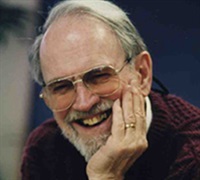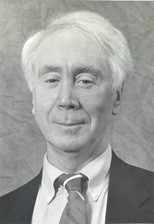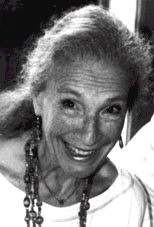EP95 Panel 06 - Patient / Therapist Relationship - James F.T. Bugental, PhD; Arnold A. Lazarus, PhD; Miriam Polster, PhD; Lenore Walker, EdD
- Average Rating:
- Not yet rated
- Topic Areas:
- Topical Panels | Psychotherapy | Relationships | Therapeutic Relationship
- Categories:
- Evolution of Psychotherapy | Evolution of Psychotherapy 1995
- Faculty:
- James Bugental, PhD | Arnold Lazarus, Ph.D. | Miriam Polster | Lenore Walker, EdD
- Course Levels:
- Master Degree or Higher in Health-Related Field
- Duration:
- 1:04:24
- Format:
- Audio Only
- Original Program Date:
- Dec 15, 1995
- License:
- Never Expires.
Description
Description: Trust, power, boundaries, and authority take center stage in this wide-ranging panel on the patient–therapist relationship. Panelists debate transferential elements, mutual influence, tailoring style to the individual, feminist and trauma-informed perspectives, self-disclosure, fees, managed care, and ethical limits. The discussion moves from spirituality and advocacy to exploitation and power differentials, offering a candid look at how seasoned clinicians navigate responsibility, humanity, and real-world constraints in the therapy room.
Moderated by W Michael Munion, MA.
Educational Objectives:
- To compare and contrast clinical and philosophical perspectives of experts.
*Sessions may be edited for content and to preserve confidentiality*
Credits
Faculty

James Bugental, PhD Related Seminars and Products
James Bugental, PhD, was one of the predominant theorists and advocates of the Existential-Humanistic Therapy movement. He received his Ph.D. from Ohio State University in 1948, was named a Fellow of the American Psychological Association in 1955, and was the first recipient of the APA's Division of Humanistic Psychology's Rollo May Award. James devoted himself to teaching and writing; he was also an Emeritus Professor, Saybrook Institute, and an Emeritus Clinical Lecturer (formerly Associate Clinical Professor), Department of Psychiatry, Stanford University Medical School. In 1987, he was the recipient of the first annual Rollo May Award of the Mentor Society "for contributions to the literary pursuit," and in 1986, he received a certificate "in recognition of the distinguished contribution to the discipline of Clinical Psychology" from the Division of Clinical Psychology, American Psychological Association. He was a past president of the Association for Humanisitic Psychology and served on the editorial boards of eight professional journals. Bugental has written 150 articles, reviews, comments, and chapters in books edited by others.

Arnold Lazarus, Ph.D. Related Seminars and Products
Arnold A. Lazarus, Ph.D., was Distinguished Professor at the Graduate School of Applied and Professional Psychology at Rutgers University. Lazarus served on the editorial boards of ten professional journals. He was president of the Association for Advancement of Behavior Therapy and received the Distinguished Service to The Profession of Psychology Award from the American Board of Professional Psychology. His Ph.D. was granted in 1960 from the University of the Witwatersrand, Johannesburg, South Africa. He has authored four books; co-authored, edited, or co-edited seven; and authoered or co-authoered more than 150 professional papers and chapters.

Miriam Polster Related Seminars and Products
Miriam Polster, Ph.D, is co-director of the Gestalt Training Center in San Diego, and Assistant Clinical Professor at the Department of Psychiatry, School of Medicine, University of California, San Diego. Along with her husband, Erving Polster, she is co-author of a book on Gestalt therapy. She received her Ph.D. in Clinical Psychology from Case Western Reserve University in 1967.

Lenore Walker, EdD Related Seminars and Products
Lenore Edna Walker, Ed.D., is an American psychologist who founded the Domestic Violence Institute, documented the Cycle of abuse and wrote The Battered Woman, for which she won the Distinguished Media Award in 1979. She was inducted into the Colorado Women's Hall of Fame in 1987. She lived and worked in Denver, Colorado, where she was a licensed psychologist, was a leader in the field of domestic violence, and was president and chief executive officer of Walker & Associates. To research family violence, Walker founded the Domestic Violence Institute.
She has testified as an expert witness in trials involving domestic abuse and had developed domestic violence training programs and drafted legislative reform. Walker interviewed 1,500 women who had been subject to domestic violence and found that there was a similar pattern of abuse, called the "cycle of abuse". She wrote the book The Battered Woman for which she won the Distinguished Media Award the same year.


